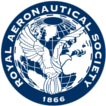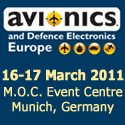The presentation covers the planning, execution and results of an initial trial to assess the ability of the AW101 helicopter to conduct air-to-air refuelling (AAR) operations. The Merlin Mk 3 and other variants of the AW101 were designed from the outset with an AAR capability, however, due to a lack of existing customer requirements and suitable tanker assets the capability had not been fully tested. This situation changed when a version of the AW101 was proposed for the USAF CSAR-X requirement. As a result, an initial AAR assessment was conducted in the UK by AW Yeovil utilising an RAF Merlin Mk3 helicopter and an Italian Air Force C130J tanker. Although the trial was limited in scope the complete Merlin AAR system was tested including fuel transfer to maximum all up mass conditions. Also included in the tests was assessment (during AAR) of an improved rotor system (BERP IV). The successful trial validated basic AW101 AAR operations as well as providing some unexpected results. In addition, it is believed that this was the first successful AAR by a UK manufactured helicopter.
In Section : Named Lectures
LECTURE: Initial Merlin MK 3 Air-to-Air Refuelling Trial
Added on 20 April 2011 by gemma crabb
Tags: AAR, Andy Strachan, AW101 helicopter, flight test, Flight Test Group, Merlin, Merlin MK 3 Air-to-Air Refuelling Trial, MK 3, royal aeronautical society, USAF CSAR-X requirement, Westland Helicopters
EDWIN A LINK LECTURE: My 53 Years as a Flight Simulation User
Added on 11 April 2011 by gemma crabb
John Farley has been using flight simulators of one sort or another since 1958 to the present. The lecture will cover some of the remarkable changes in the nature and capabilities of simulators from his perspective as a user. He will discuss lessons that he has learned about simulation and offer some personal views concerning the way simulators are used in respect of both research and pilot training applications. In the context of research he suggests there are parallels in respect of the raw data produced from simulation and the raw data measured in wind tunnels. He will explain why in his view there are two types of simulator pilots which researchers need to bear in mind when considering the data they obtain from piloted experiments.
The Edwin A Link Lecture was established in 2007 to honour Edwin A Link, the distinguished pioneer of synthetic training. His remarkable foresight led to the creation of the Link Trainer, or ‘Blue Box’ as it came to be known, the precursor of today’s powerful synthetic training devices, most notably full flight simulators.
Tags: Edwin A Link Lecture, Flight Simulation, John Farley, raes, raw data in Flight Simulation and wind tunnels, royal aeronautical society
SIR SYDNEY CAMM LECTURE
Added on 25 March 2011 by Gail Ward
The Sir Sydney Camm Lecture was established in 1971, following Sir Sydney Camm’s death in 1966, to commemorate his significant achievements in the field of aeronautical engineering.
Tags: aeronautical engineering, aerospace community, Air Chief Marshal Sir Simon Bryant, aviation, event, free event, lecture, named lecture, raes, royal aeronautical society, Royal Air Force, Sir Sydney Camm
SOPWITH LECTURE
Added on 17 February 2011 by Emma Bossom
The Sopwith lecture was established in 1990 to honour Sir Thomas Sopwith CBE, Hon FRAeS. In the years prior to World War I, Sopwith became England’s premier aviator and established the first authoritative test pilot school in the world, he also founded England’s first major flight school. Between 1912 and 1920 Sopwith’s Company produced over 16,000 aircraft of 60 types.
Tags: aerospace community, aviation, Boeing Commercial Airplanes, Boring, event, free event, Jim Albaugh, lecture, named lecture, raes, royal aeronautical society, Sopwith
HANDLEY PAGE LECTURE: ARA and Aerodynamic Technology
Added on 10 February 2011 by Royal Aeronautical Society
ARA and Aerodynamic Technology: Acknowledge the Past, Look to the Future
The 2011 Handley Page Lecture is organised jointly by the Royal Aeronautical Society and Cranfield College of Aeronautics Alumni Association and will be given by Dougie Hunter of the ARA.
Tags: aeronautics, Aerospace, aerospace aviation, aircraft research association, ARA, cranfield alumni, cranfield university, Dougie Hunter, Handley Page, Lectures
STEWART LECTURE: The Story Behind the Spin
Added on 20 January 2011 by Emma Bossom
The Story Behind the Spin: The Human Centrifuge in Aerospace Medicine
Perhaps best known as a fiendish torture device from which James Bond escaped, or an exhausting experience during flying training, the human centrifuge has been pivotal to advancements in aviation and space medicine over the last 80 years. In this presentation, the story of the struggle against G force is told from the perspective of the human centrifuge. In addition to understanding how it contributed to the development of modern day G protection, some of the technical challenges associated with the device will be explored. From a past rooted in research and development to possible futures in flight simulation and human spaceflight, the story of the centrifuge will be revealed in this Stewart Memorial Lecture.
Tags: aerospace medicine, aviation medicine, AVM W K Stewart, G-force, Human Centrifuge, Lectures, RAF, Stewart
BRABAZON LECTURE: The Future, by Airbus
Added on 17 November 2010 by Sam Phillips
BRABAZON LECTURE “The Future, By Airbus”
Charles Champion
Executive Vice President of Engineering
Airbus S.A.S
40 Years ago, Airbus was born and immediately set out to create exciting and innovative aircraft to challenge the field of civil aviation. 100 years ago the Bristol Aeroplane Company was formed and the pioneers from those decades in the past have enabled current aerospace engineers to build on lessons learnt and develop technology for the future.
Today Airbus looks forward another 40 years to 2050 and beyond, discussing the anticipated global needs of a better connected and more sustainable world.
Tags: Lectures





